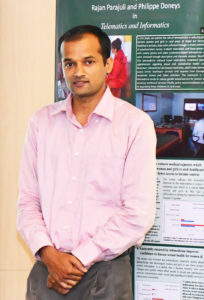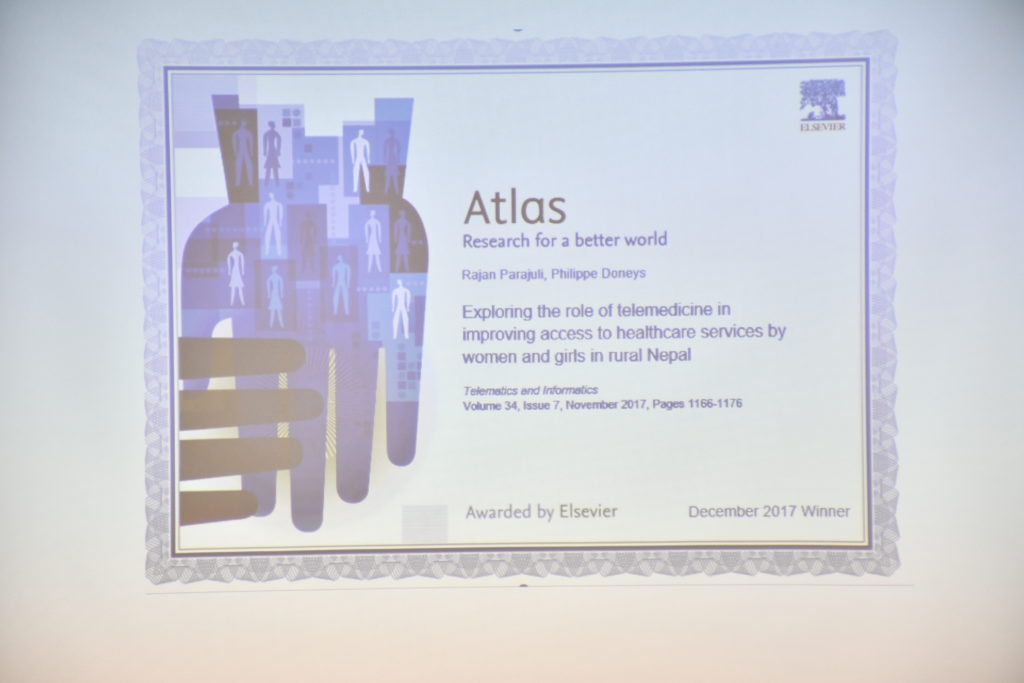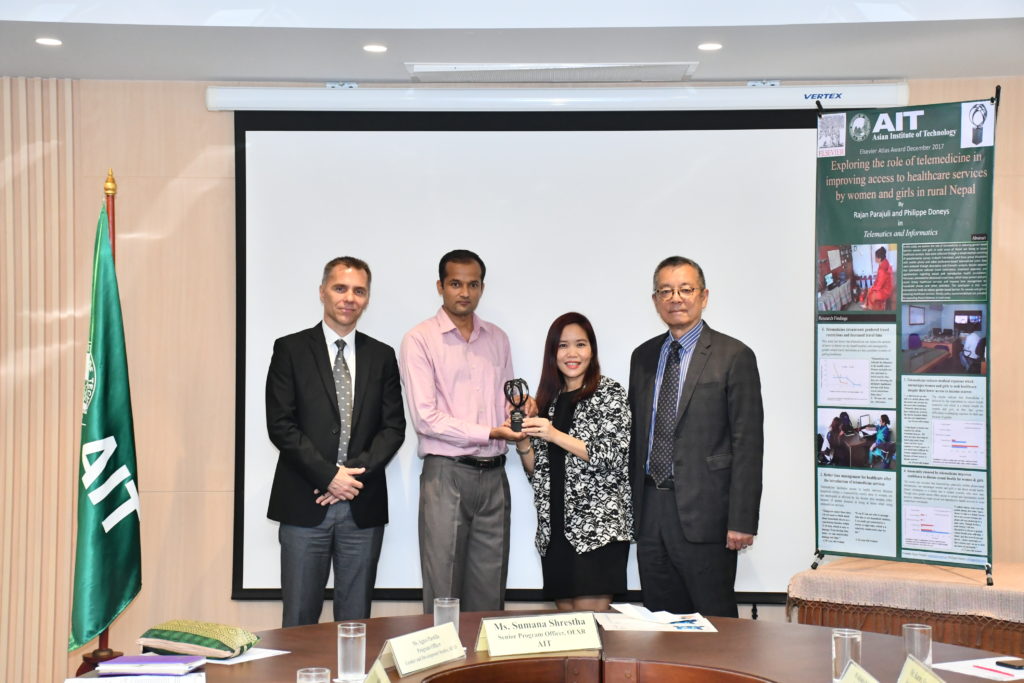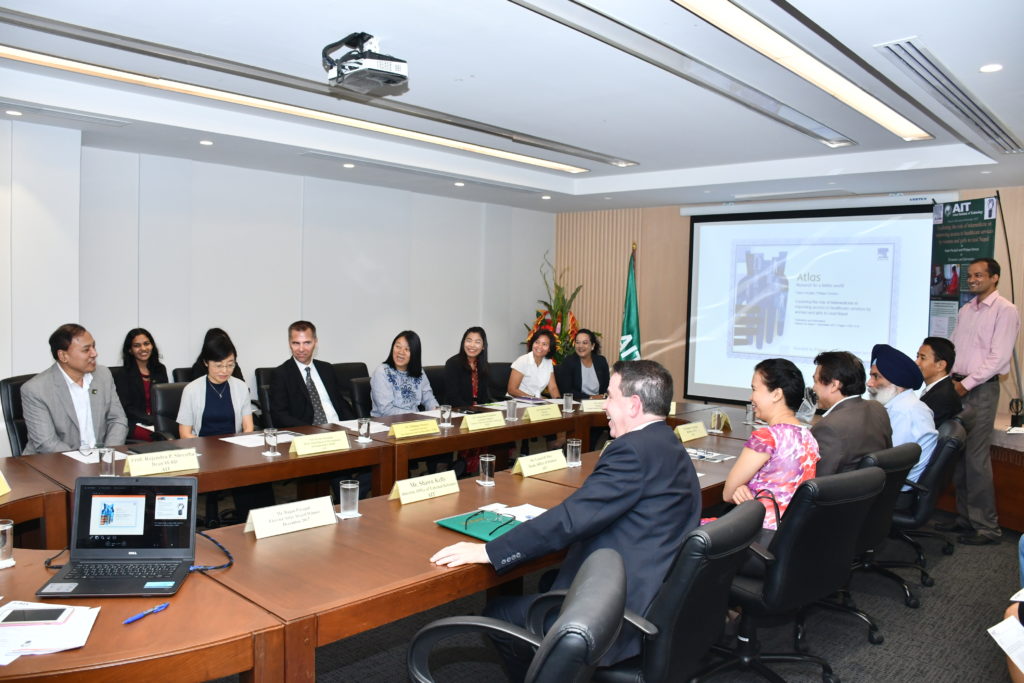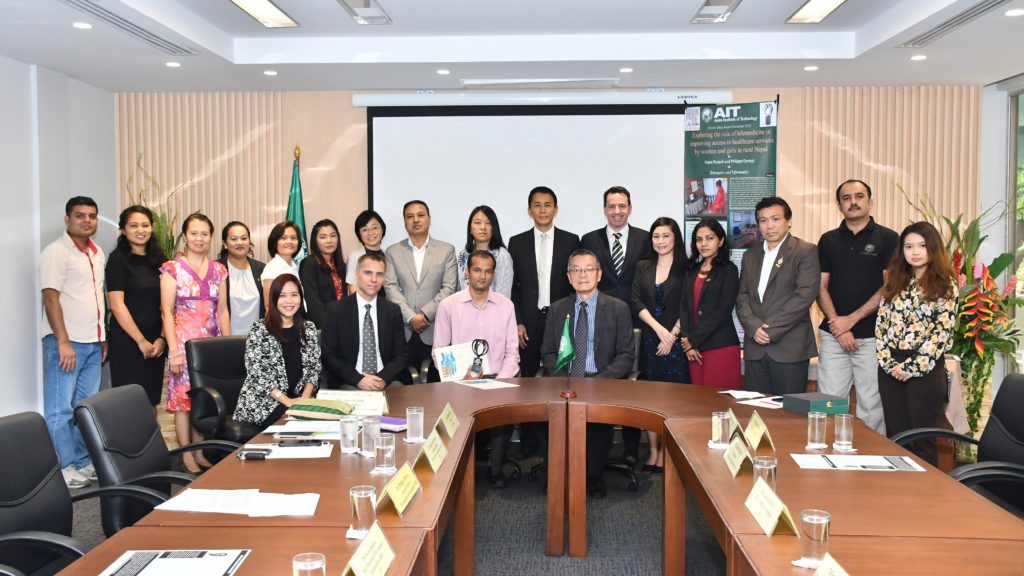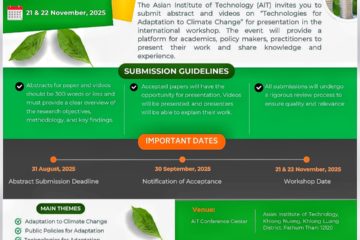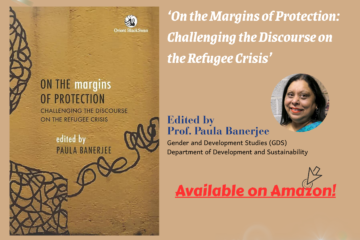Congratulations to Mr.Rajan Parajuli for receiving the Elsevier Atlas Award for December 2017
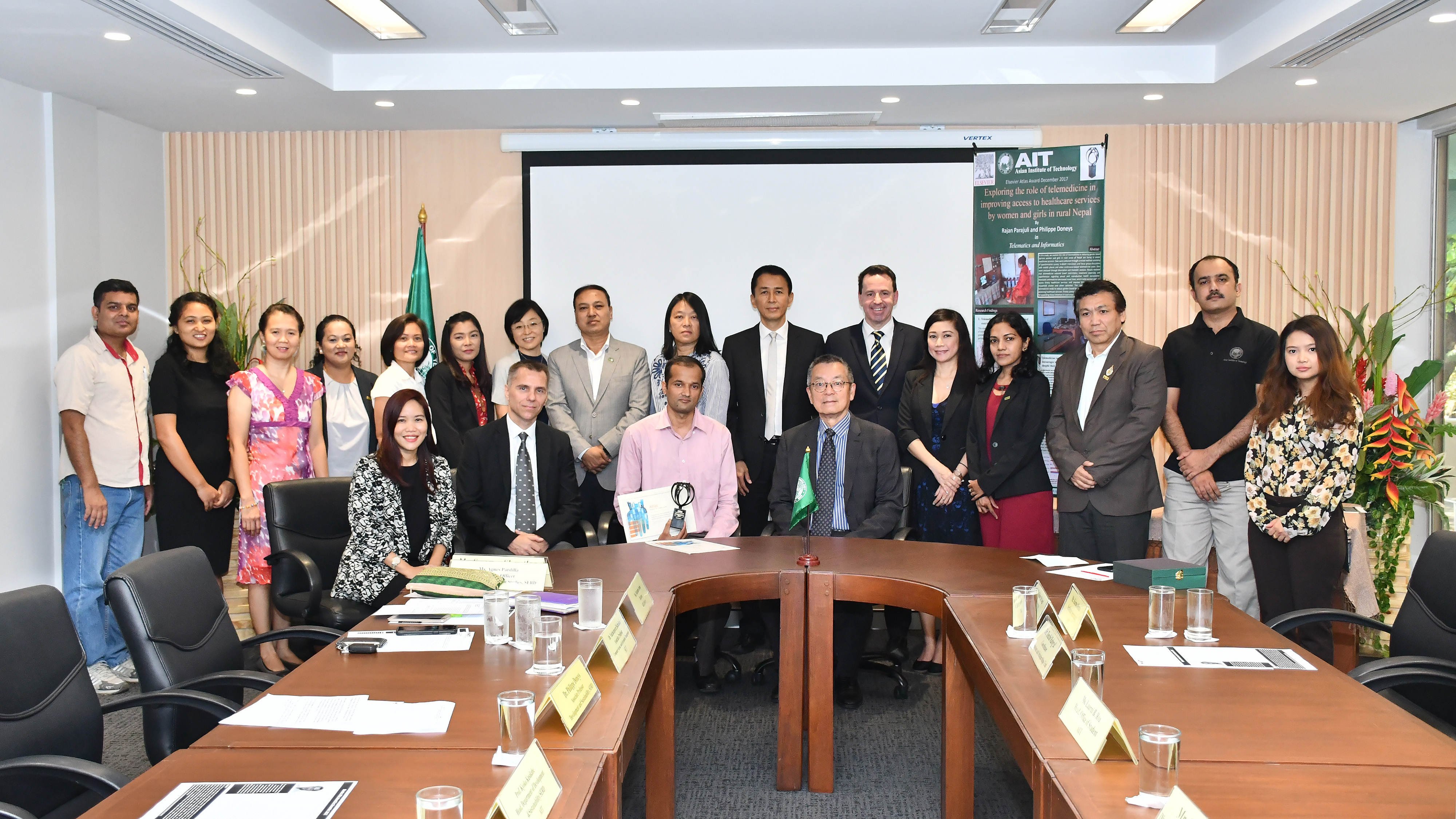
Elsevier Atlas Award for December 2017
Rajan is a doctoral student of Gender and Development Studies in the Department of Development and Sustainability in AIT’s School of Environment, Resources and Development. The article was coauthored by Rajan with his advisor Dr. Philippe Doneys, who serves as an Associate Professor at AIT.
Atlas was launched by Elsevier in January 2015 to showcase research that is of significant impact to people’s lives around the world. Every month, a single Atlas article is selected from published research from across over 3,800 journals on Science Direct by an external advisory board made up of individuals from NGOs. The panelists review the contribution to science and society, and analyze the societal impact of the article.
The paper explores how telemedicine reduces gender-based barriers to access healthcare, and circumvents gendered travel restrictions and decreases travel time. The research reviews the impact of video conferencing or mobile phones in healthcare services and highlights its use in reducing barriers for women and girls. The article was published in the journal ‘Telematics and Informatics.’
The study is important, according to Dr. Doneys, because “technologies often have gender unequal outcomes, where this research shows that they can contribute to overcoming barriers in low income and remote areas that are affecting women, and more specifically their access to healthcare services.”
While the article was selected as an Atlas article for December 2017, Elsevier also commissioned a journalist to interview the author and explain the article for wider audiences. An interview of Rajan by Kendall Morgan was published in Elsevier Atlas last week.
The article titled “Exploring the role of telemedicine in improving access to healthcare services by women and girls in rural Nepal” was selected from thousands of recently published articles from across over 3,800 journals on Science Direct by an external advisory board made up of individuals from academia, civil society and international organizations
